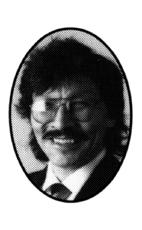Mr. Speaker, it always amazes me when members talk, as the previous speaker just did, about giving away land. It seems to me incredibly naive to say that the government gives away land. After all, I cannot describe well enough what has happened to the land that we now call crown land or Her Majesty's land or whatever the case may be.
The member talks about the large size of the land that has been given. He compares it to how Manitoba would fare if it had a similar type of land claim in that regard.
We have to remember that the boundaries were not set down by the aboriginal people. As far as the aboriginal people are concerned those are artificial boundaries when they talk about their land.
The aboriginal people, the Dene and the Inuit of the Northwest Territories, the Denesuline from Manitoba and the people from Prince Albert did not sit down and say: "Okay, here is Manitoba, here is Saskatchewan and here is the Northwest Territories". It was imposed on them. As far as they were concerned they had some boundaries but not necessarily defined when they hunted and survived around that area.
When the member talks about how large the land is in ratio to if they tried to do that with Manitoba, that is not an applicable question.
The hon member talks about how self-government is undefined. I go back to a response I made some weeks ago about self-government.
When the British parliamentary system was being set up here who asked the aboriginal people of Canada? "We are going to set up a government. We are going to set up the Parliament of Canada, but you do not have a choice. You are just going to have to go along with it". That is basically what happened. We did not have a role in defining how the system of government was going to be set up in our land.
There has to be some understanding and I am sure the understanding is there. It is just being chosen to be ignored.
We talk about the bureaucracy which is going to be set up. In the Nunavut area I hope that the bureaucracy is going to be comprised of a large number of Inuit in our area. Hopefully the same will be true in the western Arctic, and there will be a large number of Dene within the bureaucracy.
In order to save time and money in dealing with issues we want a bureaucracy and a government sensitive to the people being served. After all the bureaucracy is there to serve the people. Even though sometimes the bureaucrats seem to think it is the other way around, that is the way it is supposed to be.
Does the hon. member not understand that this is setting up a system or settling claims which are long overdue? The hon. member asks whether the aboriginal people will be paying for their own medical care and so on. He talks about the food-mail program which he says is a good one and I agree. However that subsidy cannot be taken away from the people it presently serves when in large part those people have the least earning power.
In some cases they are paying $4 for a loaf of bread, $4 for a dozen eggs, $5 for a litre of milk. They regard apples and oranges and other fruit as treats rather than a nutritional part of their diet.
Does the hon. member not think this is the settling of some claims which has been long overdue?

